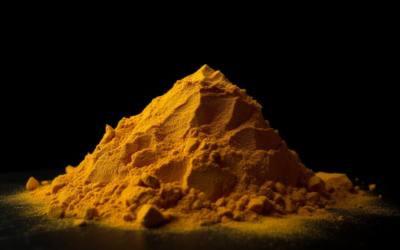What are the health benefits of L-carnitine?
L-carnitine is an amino acid that has been linked to a variety of health benefits. It can be found naturally in some foods, but it is also available as a dietary supplement. Studies have shown that L-carnitine may help with weight loss, heart health, and other conditions. Here are some of the potential health benefits of L-carnitine for everyman audience.
First, L-carnitine may help with weight loss. It helps the body break down fat and use it for energy, which can lead to reduced body fat levels over time. Additionally, studies have suggested that taking L-carnitine supplements may increase physical performance during exercise, leading to greater calorie burn and improved weight management results.
Second, L-carnitine may improve heart health by helping reduce cholesterol levels and improving blood flow throughout the body. This can help reduce the risk of stroke or heart attack in people who are at risk for these conditions due to lifestyle factors such as smoking or high cholesterol levels. Additionally, research suggests that taking L-carnitine supplements may improve symptoms associated with angina pectoris (chest pain caused by reduced blood flow).
Finally, there is evidence that suggests taking L-carnitine supplements may help treat certain medical conditions such as diabetes and kidney disease. In addition to this, research has suggested that it could potentially be beneficial in treating depression and anxiety disorders as well as age related cognitive decline like Alzheimer’s disease or dementia. While more research needs to be done on these potential benefits before any definitive conclusions can be made about their effectiveness, they certainly show promise for those looking for natural treatments for various ailments.
In conclusion, there are many potential health benefits associated with taking L-Carnitine supplements including weight loss support, improved heart health outcomes and possible treatment options for certain medical conditions like diabetes or kidney disease among others. However more research needs to be done before any definitive conclusions can be made about its effectiveness so its important to speak with your doctor before starting any new supplement regimen
What is the recommended dosage of L-carnitine?
L-Carnitine, dosage
When it comes to taking L-carnitine supplements, the recommended dosage varies depending on a persons age and health. Generally speaking, adults should take between 500 and 2,000 milligrams of L-carnitine per day. It is important to note that this dosage can vary based on individual needs and medical advice.
For those who are looking to improve their athletic performance or reduce fatigue levels, the recommended daily dose is usually higher than the general recommendation. In these cases, it is best to consult with a doctor or nutritionist before increasing your intake of L-carnitine beyond what is typically recommended for adults.
It is also important to note that there may be side effects associated with taking too much L-carnitine such as nausea, vomiting, diarrhea and stomach pain. Therefore, it is always best to follow the instructions provided by your doctor or nutritionist when taking any supplement in order to ensure you are getting the right amount for your body type and lifestyle.
What are the functions of L-carnitine in the body?
L-carnitine, body, functions
L-carnitine is an amino acid that plays a vital role in the human body. It helps to transport fatty acids into the mitochondria of cells, where they are converted into energy. This process helps to keep our bodies functioning properly and efficiently. L-carnitine also has other important functions in the body such as helping to maintain healthy cholesterol levels, improving heart health, and aiding in muscle recovery after exercise.
One of the most important functions of L-carnitine is its ability to help with weight loss. Studies have shown that supplementing with L-carnitine can help increase fat burning and reduce fatigue during exercise. Additionally, it can help improve physical performance by increasing oxygen uptake and reducing lactic acid buildup in muscles during exercise.
Finally, L-carnitine may also be beneficial for brain health. Studies have found that it can help protect against age-related cognitive decline by increasing blood flow to the brain and providing protection from oxidative stress caused by free radicals. It may also be helpful for those suffering from Alzheimer’s disease or Parkinson’s disease as it has been shown to improve symptoms associated with these conditions.
In conclusion, L-carnitine is an essential amino acid that plays a key role in keeping our bodies functioning properly and efficiently. Its main function is helping to transport fatty acids into cells where they are converted into energy but it also has other benefits such as aiding weight loss, improving heart health, aiding muscle recovery after exercise and protecting against age related cognitive decline.
How should L-carnitine be taken?
L-carnitine, supplement, diet
How should L-carnitine be taken?
L-carnitine is a naturally occurring amino acid that can be found in the body and certain foods. It is often used as a dietary supplement to help with weight loss and energy production. To get the most out of this supplement, it’s important to understand how it should be taken.
The recommended dosage for L-carnitine varies depending on your age, health condition, and other factors. Generally speaking, adults should take between 500 mg and 2 grams per day in divided doses throughout the day. It’s best to start with a lower dose and gradually increase it over time if needed. You may also want to talk to your doctor about the right dosage for you before taking any supplements.
It’s also important to note that L-carnitine works best when combined with a healthy diet and regular exercise routine. Eating plenty of lean proteins like fish or chicken will help your body absorb more of the supplement while exercising regularly will ensure that your body is using all of its energy efficiently. Additionally, drinking plenty of water throughout the day will help keep your system hydrated so that you can make the most out of each dose of L-carnitine you take.
What are potential risks of consuming too much L-carnitine?
L-carnitine, risks, health
Consuming too much L-carnitine can have potential risks to your health. L-carnitine is an amino acid that helps the body turn fat into energy. It is found in some foods such as red meat and dairy products, but it can also be taken as a supplement. While it may offer some benefits for those who are deficient in the nutrient, taking too much of it could lead to serious side effects.
The most common risk associated with consuming too much L-carnitine is gastrointestinal upset. This includes nausea, vomiting, diarrhea and abdominal pain. Additionally, there have been reports of headaches and dizziness after taking high doses of this supplement. In rare cases, more serious side effects such as seizures or liver damage have been reported when large amounts were consumed over a long period of time.
It’s important to note that most people do not need to take a supplement for L-carnitine since it is naturally found in food sources like red meat and dairy products. If you are considering taking this supplement, talk to your doctor first about any potential risks associated with consuming too much L-carnitine and whether or not it’s right for you.
What are natural sources for L-carnitine?
Natural Sources, L-Carnitine
L-carnitine is an important nutrient found in many foods and supplements. It plays a vital role in the bodys energy production and metabolism, helping to convert fat into energy. But what are natural sources of this essential nutrient?
The best natural source of L-carnitine is red meat, such as beef or lamb. Other good sources include poultry, fish, dairy products, and some vegetables like spinach and avocado. Nuts and seeds also contain small amounts of L-carnitine. Additionally, some plant-based foods such as quinoa and amaranth have been found to contain significant amounts of this nutrient.
In addition to food sources, there are several other ways to get your daily dose of L-carnitine. Supplements are available in pill form or as a powder that can be added to smoothies or shakes for an extra boost of energy throughout the day. Some people may also benefit from taking a multivitamin that contains this nutrient as well as other essential vitamins and minerals for overall health and wellbeing.


